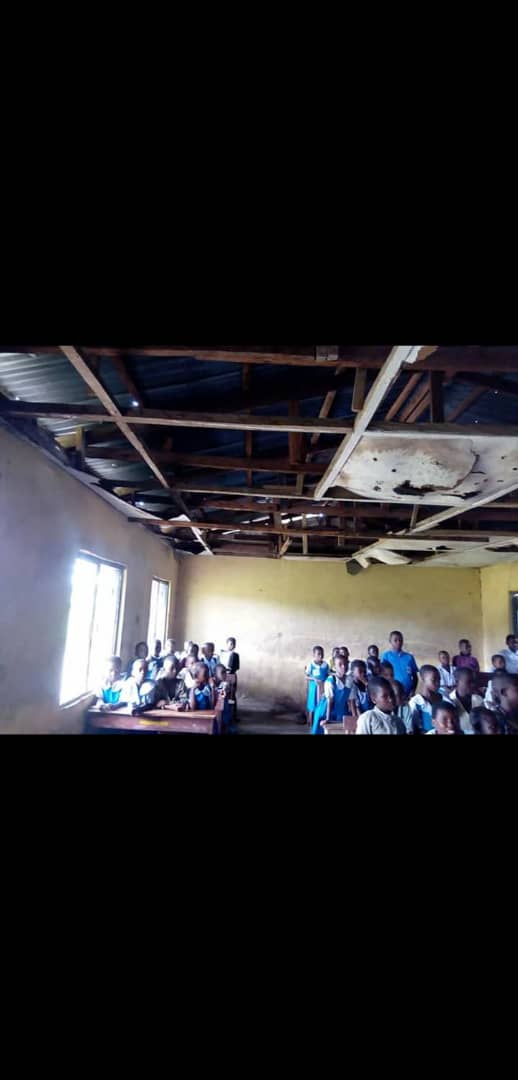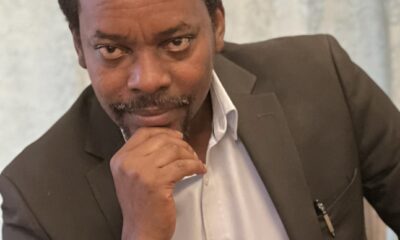Educational Issues
Our children, our future -By Ganiyu Abdullahi
In the words of Martin Luther King (Jnr.), “The property of a nation cannot be measured by the abundance of her public buildings. But rather, through the numbers of her cultivated citizens.”

Memories of our childhood will no doubt give us nostalgic surprises as it reminds us of our early beginnings. Childhood is, therefore, a phase of life from infancy to the stage of minor adulthood.
Before the year 2000, children and youth days were combined and jointly celebrated, until the United Nations finally pronounced that International Children and Youth Day should be separated and celebrated apart on May 27 and August 12, respectively. In addition, the African Charter also declared every June 16 as the Day of the African Child in order to drive home the inextricable importance of the welfare and holistic development of the African child. Another giant stride towards addressing the plight of the Nigerian child was the passage and adoption of the Child Rights Act in 2003.
Without a doubt, there is no gainsaying the fact that both children and youth, who are commonly referred to as “future leaders,” are the most vulnerable segments of Nigeria’s vast population. As such, pragmatic and conscientious efforts must be constantly made towards the provision of meaningful social security structures and programmes that would effectively shape them morally, intellectually and spiritually in order to redirect the present disheartening downtrend in the Nigerian society.
Children depend on us to speak for them because they are voiceless (powerless) and they suffer most when national resources are mismanaged. Therefore, they need us to bring their special needs to the notice of those in power. Statistics have it that over 10 million Nigerian children are presently being classified as “less privileged children.” This figure portends a great danger sign for the nation. In fact, there are so many shocking and highly disturbing statistics on the Nigerian children, ranging from child abuse (in different forms), child labour, out-of-school children, street children, and child mortality issues, among others.
A child does not willingly choose his or her parents, family, tribe, society or nation.
In essence, the role of the family institution as a veritable social unit of a nation can not be over-emphasised in view of the fact that a nation is built on the foundation of various family structures, whose members interface together in the larger society, to pilot the affairs of their nation. In comparative terms, a nation’s future growth largely depends on socio-economic well-being, as well as the security and stability of various family structures. As a result, a child’s immediate environment is, without a doubt, his first school from infancy.
At this stage of a child’s life, the five senses of taste, sight, touch, feel and smell constitute the child’s means of communication. The sensual learning process of a child can, therefore, be summed up thus: If a child lives with criticism, he learns to condemn; if a child lives with hostility, he learns to fight; if a child lives with ridicule, he learns to be shy; if a child lives with shame, he learns to feel guilty; if a child lives with tolerance, he learns to be patient; if a child lives with encouragement, he learns to have confidence; if a child lives with praise, he learns to appreciate; if a child lives with fairness, he learns justice; if a child lives with security, he learns to have faith; if a child lives with approval, he likes himself; if a child lives with acceptance and friendship, he learns to find love in the world.
The present deplorable socio-political cum economic situation in Nigeria has now become very pathetic and worrisome because Nigerian children and youths, who should be properly groomed as future leaders have been derailed, demoralised and psychologically injured by the multitude of shameless and heartless people, who are saddled with the responsibility of managing national resources for both human and national development. These bunch of unpatriotic people, who should serve as role models to the younger ones and the larger society are not only stealing public funds, they are also destroying the sanctity of government, as well as social development infrastructures of the society in general, most especially education. At no other time than now are the Nigerian children faced with unprecedented threats. Nigeria’s future is now gravely endangered, due to the gross negligence of those who are saddled with managing our national affairs.
In the words of Martin Luther King (Jnr.), “The property of a nation cannot be measured by the abundance of her public buildings. But rather, through the numbers of her cultivated citizens.”
In the light of the above salient facts, the roles of youth organisations, most especially those that focus on imparting religious, moral, civic education, character building, leadership training, patriotism and selfless service are sine-qua-non, to the attainment of sustainable success in this direction cannot be over-emphasised. It, therefore, behoves government at all levels, to identify and synergise with these organisations by strengthening them towards achieving their lofty aims and objectives.
- Ganiyu Abdullahi, a youth activist, writes via abdullahiganiyu751@gmail.com

















